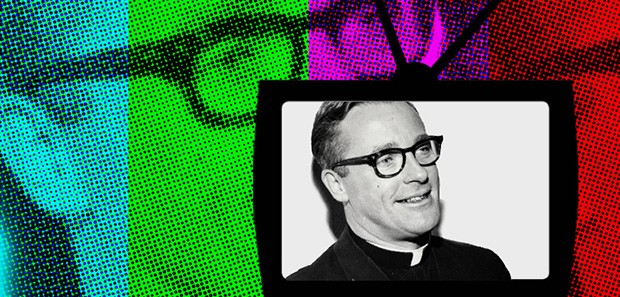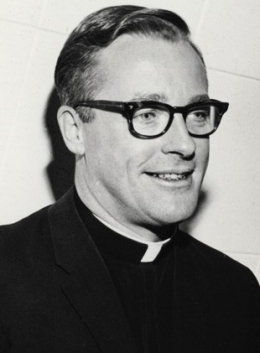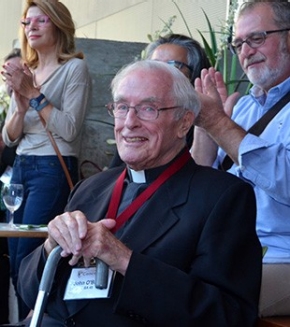The following year, life officially began for the Department of Communication Arts, the first of its kind in Canada. It was later renamed Communication Studies.
“The department grew from a small program, with a handful of people teaching and a handful of students, to one of the signature programs in Concordia and across the country,” says Sandra Gabriele, associate professor and chair of the Department of Communication Studies.
Two students who took the first communications course — Dennis Murphy and Donat Taddeo — would later return to Concordia as Communication Studies professors.
The department deals with current issues in communications, but also prepares students for the future, says Murphy, who began teaching at Concordia in the fall of 1970, and still teaches an online course today.
“I am not referring to ensuring them a job or a skill, but to developing their thinking about their social responsibility, ethics and respect for future audiences and content.”
Today, Concordia boasts nearly 5,000 Communication Studies alums. More than 500 undergraduate and 100 graduate students are currently enrolled in the department’s various programs.
“The department has added programs and diversified in terms of the skills we teach,” says Gabriele. “What has remained, however, is a constant commitment to critical thinking and critical media making. We owe that to the leadership and vision established in ’65 by Father O’Brien.”
The department currently offers five programs, including a graduate diploma designed for students coming from other disciplines, an MA in Media Studies and a joint PhD offered in partnership with Université de Montréal and Université du Québec à Montréal.
“The strength of our reputation comes from our pedagogy and faculty. We have the top communication studies researchers in the country in one department,” says Gabriele. “Every year, the department garners millions of dollars in research funding, and we bring that research into the classroom, which means our students are exposed to cutting-edge thinking all the time.”
 “Father O’Brien believed media could be a powerful tool for good and serve social justice, integrity and ethics.”
“Father O’Brien believed media could be a powerful tool for good and serve social justice, integrity and ethics.”

 Father O’Brien at the Department of Communication Studies 50th anniversary celebration. | Photo by Luke Quin
Father O’Brien at the Department of Communication Studies 50th anniversary celebration. | Photo by Luke Quin